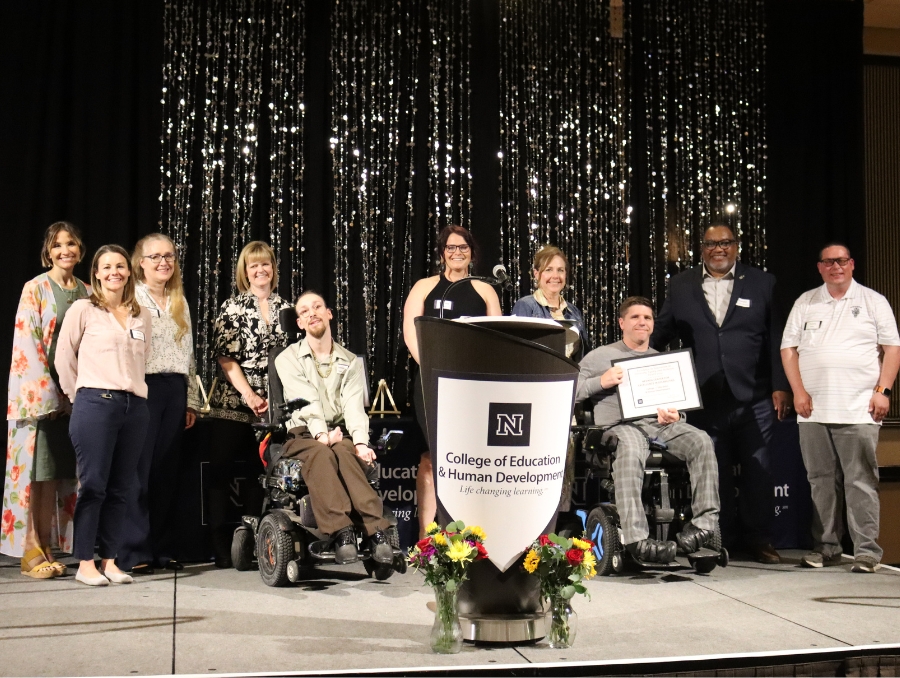WE THE PEOPLE.
They are three words that are forever linked, three words that project a certain sense of solidarity, of respect for the rights of individuals, and the checks and balances of a government expressly created by and for the people.
On Thursday, Sept. 17, the University of Nevada, Reno campus will commemorate "Constitution Day" as part of a national celebration of the 222nd anniversary of the signing of the Constitution of the United States of America.
The student chapter of Pi Sigma Alpha, the national political science honor society, will host a student panel from 11:30 a.m. to 1:30 p.m. in the Joe Crowley Student Union. Participating student groups from the University of Nevada, Reno, Galena and Spanish Springs High Schools and the Davidson Academy will discuss the following subjects:
- Health Care Reform
- U.S. Citizenship
- Cruel and Unusual Punishment
- Freedom of Speech
- Electoral College
According to Mike Moltz, president of Pi Sigma Alpha, the event will help those attending not only come to a better understanding of the nation's most powerful document, but to also exercise the full and robust rights citizens exercise whenever they discuss important ideas central to democracy.
"Constitution Day provides a valuable venue for the campus community to further its appreciation for the U.S. Constitution," Moltz said. "Constitution Day allows for an active debate on the constitutional relevancy of current events, Supreme Court cases, and public policy."
It is a sentiment that the delegates of the Constitutional Convention of 1787 would certainly appreciate.
On Sept. 17, 1787, when the delegates to the Constitutional Convention in the State House (Independence Hall) in Philadelphia met for the final time to sign the document they had spent an entire hot, humid summer creating, the odds that it would still survive more than 200 years later seemed less than certain. "The Father of the Constitution," as 36-year-old delegate James Madison of Virginia came to be known, had labored diligently for the Constitution's approval.
Madison, normally a quiet, copious note-taking attorney who had earlier served as an elected representative to the Virginia House of Delegates and the Continental Congress, had extensive knowledge of all forms of government throughout the history of the world. He had a fierce belief in a balance between individual states and national authority. He had seen the flimsiness of the individual-state-centered Articles of Confederation, and pushed for support for a strong national executive, representation in Congress according to population, the need for checks and balances among the three branches of government and the idea of a federal system that assigned certain powers to the national government and reserved others for the states.
The result of the work of Madison and a group of delegates that included such Revolutionary War-era luminaries as George Washington of Virginia and Benjamin Franklin of Pennsylvania - was the Constitution of the United States of America. In the words of a weakened Franklin of Pennsylvania, delivered by his friend James Wilson on the final day of Constitutional Convention, the document, if not quite perfect and the subject of much spirited debate throughout the summer, was certainly worthy of the delegates' support: "Thus I consent, Sir, to this Constitution because I expect no better, and because I am not sure, that it is not the best. The opinions I have had of its errors, I sacrifice to the public good ... I can not help expressing a wish that every member of the Convention who may still have objections to it, would with me, on this occasion doubt a little of his own infallibility and make manifest our unanimity, put his name to this instrument."
Within days, the Constitution was "laid before the United States in Congress assembled" and Congress debated, according to the U.S. National Archives, "whether to censure the delegates to the Constitutional Convention for exceeding their authority by creating a new form of government instead of simply revising the Articles of Confederation." Although Congress dropped the matter, months of strenuous debate in individual state legislatures lay ahead.
Ultimately - and thanks in no small part to the pro-Constitution writings of James Madison, John Jay and Alexander Hamilton in the "Federalist Papers" - the new document was ratified by the needed nine states. The first state to ratify was Delaware, on Dec. 7, 1787, by a vote of 30-0. New Hampshire was the ninth state to ratify the document the following June, but it wasn't until two of the country's most important states, Virginia and New York, narrowly approved the Constitution that it became clear that Franklin's final-day Convention words - "It astonishes me, Sir, to find no system approaching so near to perfection as it does, and I think it will astonish our enemies" - were truly going to come to pass.











